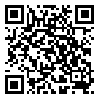Volume 11, Issue 3 (2020)
LRR 2020, 11(3): 95-119 |
Back to browse issues page
Download citation:
BibTeX | RIS | EndNote | Medlars | ProCite | Reference Manager | RefWorks
Send citation to:



BibTeX | RIS | EndNote | Medlars | ProCite | Reference Manager | RefWorks
Send citation to:
Rastegar Moghadam M R, Khoshsaligheh M, Pishghadam R. English Translation Students’ Attitude towards Teamwork Skills in Subtitling Training Classroom. LRR 2020; 11 (3) :95-119
URL: http://lrr.modares.ac.ir/article-14-27600-en.html
URL: http://lrr.modares.ac.ir/article-14-27600-en.html
1- PhD in Translation Studies, Department of English, Ferdowsi University of Mashhad, Iran
2- Associate Professor in Translation Studies, Department of English, Ferdowsi University of Mashhad, Iran ,khoshsaligheh@um.ac.ir
3- Professor in TEFL, Department of English, Ferdowsi University of Mashhad, Iran
2- Associate Professor in Translation Studies, Department of English, Ferdowsi University of Mashhad, Iran ,
3- Professor in TEFL, Department of English, Ferdowsi University of Mashhad, Iran
Abstract: (5424 Views)
Audiovisual translation is a thriving new area of research on a-century-old practice of an intercultural communication mode. Subtitling as one of the most popular forms of audiovisual translation has been practiced by professionals in various ways. Traditionally, subtitlers have been asked to individually carry out the linguistic transfer between languages, to decide the in and out times of subtitles on screen, as well as to carry out the simulation, revision and quality control of the subtitles; an obsolete attitude which may not be compatible with today’s real world facts and working conditions and demands. Subtitling has also gained a special attention by language teaching experts as a very useful educational tool with many benefits for foreign language learners, hence the importance of subtitling education development. The present article investigates the influence of subtitle training classroom experience on subtitler trainees’ attitude towards teamwork skills in subtitling practice. Considering the special time constraints of subtitling projects and the different skills required for this translation, the role of teamwork has been typically highlighted in such projects both at the professional and freelance levels. To study the current situation and the relationship between subtitling education and teamwork in the Iranian training setting, 167 male and female English translation students at undergraduate level were selected to contribute to this project. The participants attended a 5-month subtitler training program in the form of 6 separate classes to learn and improve their subtitling skills. The quasi-experimental research based on a pre-test post-test model was used to collect data on the students’ attitude about teamwork skills before the training and after they have attended the course and have completed three real market-based subtitling projects in teams. The reliability and validity of the self-designed questionnaire to study the translation students’ attitudes towards teamwork skills were statistically established using confirmatory factor analysis and scale reliability analysis. The results of the study are discussed in relation to the related literature.
Send email to the article author
| Rights and permissions | |
 |
This work is licensed under a Creative Commons Attribution-NonCommercial 4.0 International License. |








